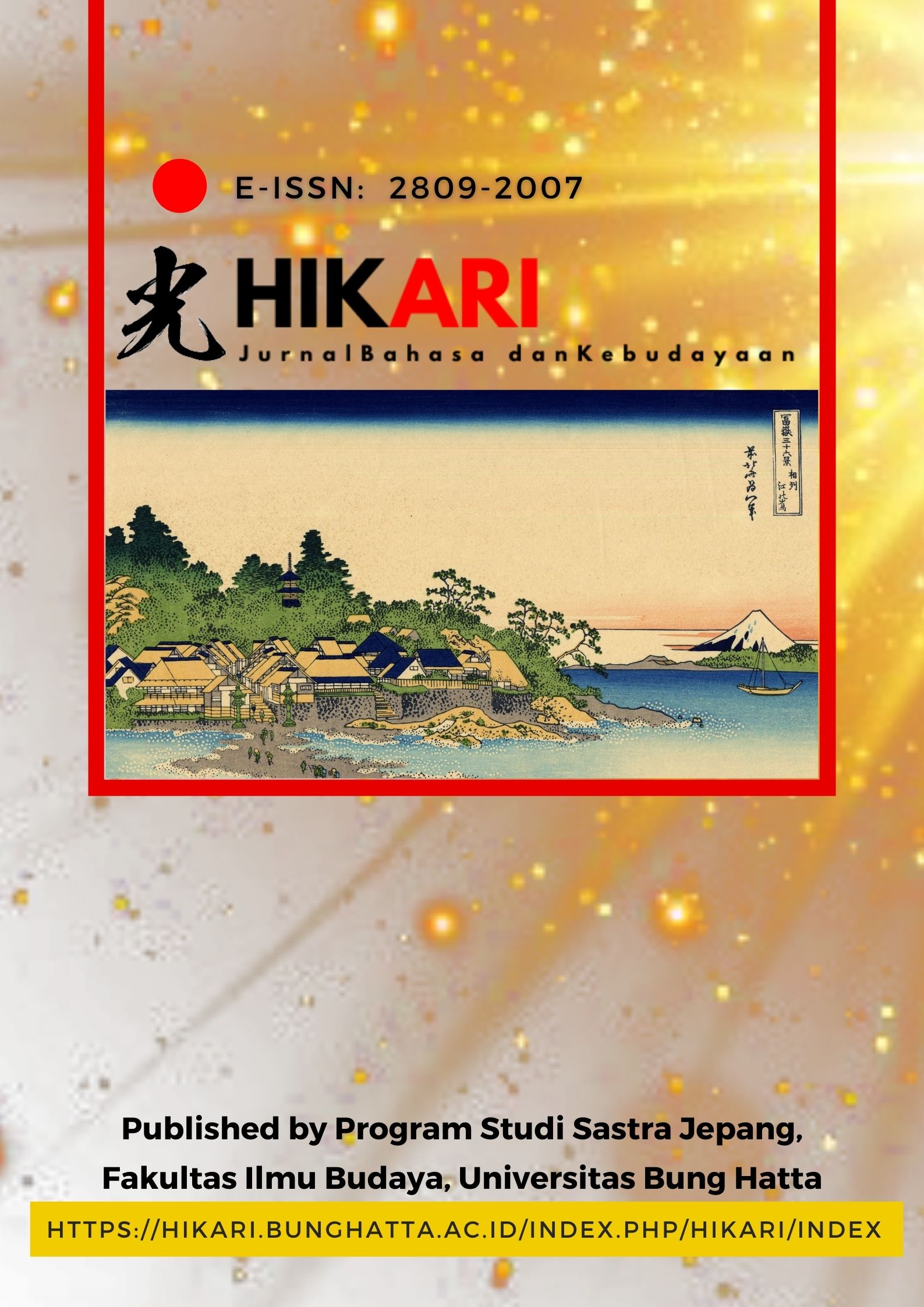JAPANESE IDIOMS USE LIMBS THEIR MEANING OF DECLARATION NATURE AND BEHAVIOR
DOI:
https://doi.org/10.37301/hikari.v2i2.29Keywords:
Idiom Bahasa Jepang, Anggota Tubuh, Sifat , PerilakuAbstract
Expressive expressions that cannot be explained logically or grammatically are called idioms. Types of idioms based on their constituent elements are divided into six types, namely idioms with names of body parts, colors, animals, plants, numbers, and natural objects. Then based on the type of meaning, idioms are divided into five types, namely idioms that express feelings/senses, nature or behavior, actions or activities, degrees or values, and the life of society or culture. The purpose of this research is to describe the meaning idiomatical idioms of the body that express nature and behavior. The method used is method qualitative descriptive. The results of this study are Japanese idioms using limbs that are found as many as 24 data, 11 idiom data which states the nature and 13 idiom data which states the behavior.
References
Arifah, Novi Dwi. 2019. Analisis Idiom Bahasa Jepang yang Menggunakan Kata Koshi. Skripsi. Semarang: Universitas Diponegoro
Laksono, Azis Wahyu. 2022. “Idiom Berleksikon Tangan (Te) yang Bersinonim dalam Bahasa Jepang dan Bahasa Indonesia” Jurnal Budaya, Bahasa, dan Sastra 9(2):139.
Sudaryat, Yayat. 2008. Makna dalam Wacana. Bandung: Yrama Widya
Inoue, Muneo. 1992. Reikai Kanyouku Jiten: Iitai Naiyou Kara Gyakubiri Dekiru. Tokyo: Shootakusa
KBBI (Kamus Besar Bahasa Indonesia). Kamus versi online/daring (Dalam Jaringan). diakses pada 24 Desember. 2022. http://kbbi.web.id/
Damiati, dkk. 2017. Perilaku Konsumen. Depok: PT Rajagrafindo Persada
Sugiyono, 2016. Metode Penelitian Kuantitatif, Kualitatif dan R&D. Bandung: PT Alfabet
Mahsun, 2017. Metode Penelitian Bahasa: Tahapan, Strategi, Metode dan Tekniknya. Depok: PT Rajagrafindo Persada
Sudaryanto, 2015. Metode dan Aneka Teknik Analisis Bahasa. Yogyakarta: Sanata Dharma University Press

Downloads
Published
Issue
Section
License
Copyright (c) 2023 Hikari: Jurnal Bahasa dan Kebudayaan

This work is licensed under a Creative Commons Attribution-ShareAlike 4.0 International License.





